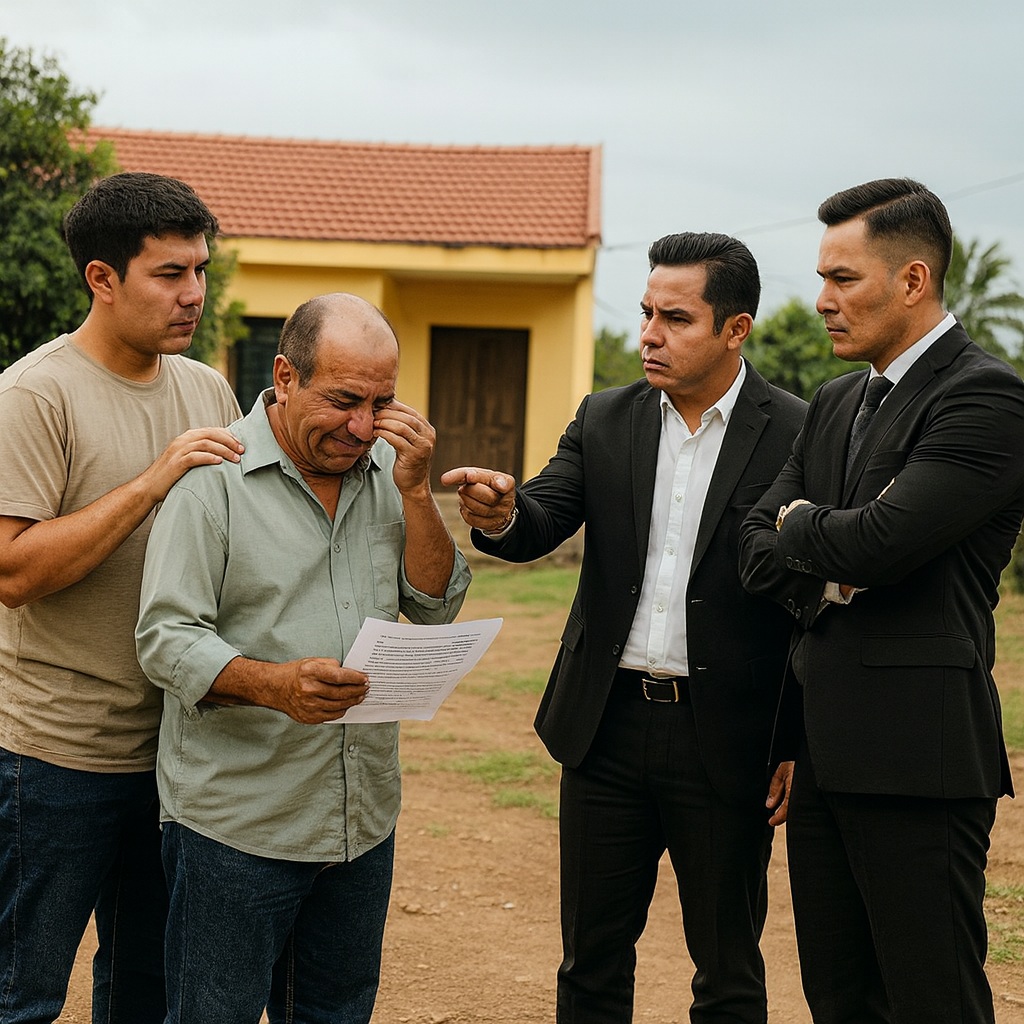I always thought debts were paid in money. It wasn’t until my father’s final years that I learned some are paid in silence, in actions, in staying when others walk away.
When my father fell ill, it wasn’t dramatic. No ambulance sirens or middle-of-the-night emergencies. Just a slow decline—his shoulders hunched more, his steps grew unsteady, and eventually, the shop he ran with pride for 40 years stopped opening at all.
He called all three of us home—me and my older brothers, Karim and Elias. We sat in the living room, same cracked coffee table, same clock ticking like it always had.
“I won’t be around forever,” he said, sipping lukewarm tea. “Someone will need to manage things. The house, the shop… and me.”
Karim was quick to look away, murmuring something about business trips and his kids’ schedules. Elias shrugged and said, “Maybe we can hire someone?”
I didn’t say much. But two days later, I moved back into the spare room on the top floor and took over his care.
The days blurred—meals, medicine, cleaning, doctors. The shop became mine to run too, dusty shelves and all. We didn’t make much, but he liked sitting by the window, watching people come in. Sometimes, he’d nod approvingly. Other times, he’d doze off mid-conversation.
One evening, while I was massaging his legs swollen from the meds, he asked, “You regret it?”
“Regret what?”
“Being the one who stayed.”
I paused. “No. I regret not doing it sooner.”
He smiled.
That winter was harsh. The heating barely worked, and we used extra blankets. Karim and Elias visited once each. Brought fruit. Talked politics. Left quickly.
Then, in spring, his condition turned. A quiet collapse. Hospital beeps. Days turned to nights. I stayed at his side, reading him the newspaper, even when his eyes were shut.
He passed away peacefully, just after dawn.
The funeral was quiet. Neighbors, cousins, a few old friends. Karim gave a stiff speech. Elias cried more than expected.
Two days later, I was called to the lawyer’s office.
There it was—an envelope. Thick, sealed in wax with my father’s initials. It wasn’t a thank-you note or even a letter of goodbye.
It was his will.
I read the first lines aloud: “To my youngest son, who bore burdens not his own and asked for nothing in return…”
I blinked, reading further.
The three-story house. The corner shop and adjacent land, all 300 square meters of it. Mine.
I looked up, stunned, and for a second—just a second—I could imagine his smile in the room.
“My life wasn’t about wealth,” the letter continued. “It was about learning who values what truly matters. To those who showed up only in words, I offer peace. But to the one who showed up in action, I offer everything else.”
Just then, the door opened. Karim and Elias walked in, dressed well as always. Karim froze when he saw the documents in my hand.
“What’s that?” Elias asked, though his eyes already knew.
“The will,” I said.
They stood in silence as I read the rest.
Karim stepped forward. “Dad wouldn’t do that. He loved all of us.”
“He did,” I replied. “But he also saw what love looks like in real time.”
“Is this revenge?” Elias said bitterly. “Some kind of punishment?”
“No,” came a voice behind me.
We all turned. The lawyer gestured toward a small video device. “There’s more. He recorded a message.”
I pressed play.
My father appeared on the screen, sitting in his chair, a blanket over his lap.
“If you’re watching this,” he said, “I’ve left this world. But I didn’t leave confusion behind—I hope.”
He leaned closer to the camera.
“Karim, Elias—I don’t judge your choices. But when I needed help, I saw clearly who carried me. Not with promises, but with patience. Not with excuses, but with effort.”
His voice wavered slightly.
“This house was built by our hands. That shop paid your school fees. The land gave us life. I’ve given it all to the one who gave back when I was weakest.”
Then he smiled.
“No bitterness. Only truth. I love you all. But I trust the one who proved he would stay.”
The screen faded.
No one spoke for a full minute.
Karim shook his head slowly. “We didn’t know…”
“You didn’t ask,” I said quietly.
They left soon after. No yelling. Just quiet steps down a hallway that now felt heavier than it ever had.
In the weeks that followed, whispers moved through the family. Some called it wise. Others called it cruel. I said nothing. I reopened the shop. Painted the windows. Cleaned the rooms.
But I kept the letter.
And I remembered the final thing my father said to me in person, just a week before he passed.
“You don’t owe me anymore. The money I gave you that year? That was never about the loan. It was a test. And you passed.”
Now, every morning when I open the shop, I see more than shelves and dust.
I see a legacy.
Not of wealth—but of choice. Of presence.
Because in the end, the most valuable inheritance wasn’t land or buildings.
It was his trust.
And that—no one can ever take from me.
